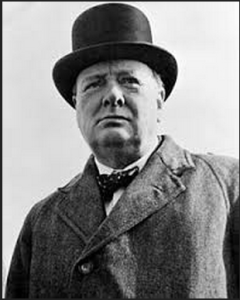What is cluttering, and how is this different than stuttering? We’ve heard that question many times from readers, so we thought we’d take a moment to explain the speech disorder called cluttering in more detail. Cluttering is a speech and communication disorder that affects a person’s ability to convey speech in a clear and concise manner. It is often characterized by an abnormally rapid rate of speech, difficulty organizing thoughts or getting to the point and words that sound like they are “running into each other.”
5 Awesome Activities for Children with Autism!
At Home Ideas Autism Games and Activities Language Development News Speech Disorders
 As we celebrate National Autism Awareness month, we’d like to share with you ideas for activities that help support children with autism. Autism is an increasingly more common neurological condition that affects brain development. As such, children diagnosed with autism have more difficulty socializing with others, effectively communicating and responding appropriately to the environment around them. Are there activities that you can do with your child to help encourage effective communication and engagement? Yes, read on!
As we celebrate National Autism Awareness month, we’d like to share with you ideas for activities that help support children with autism. Autism is an increasingly more common neurological condition that affects brain development. As such, children diagnosed with autism have more difficulty socializing with others, effectively communicating and responding appropriately to the environment around them. Are there activities that you can do with your child to help encourage effective communication and engagement? Yes, read on!
If your child has autism, you know that it affects each child differently. Children with autism possess a wide variety of skills, strengths, and needs. In addition to individualized therapy, there are simple, everyday activities that parents, teachers and caregivers can do to help support children with autism. We’ve put together a list of materials and fun activities that encourage social skills, and enhance communication for children with autism.
What kinds of activities and games are best? An article in Science Daily, discussed the importance of play in children with autism spectrum disorders (ASD). “Children with ASD chose to engage in play that provided strong sensory feedback, cause-and-effect results, and repetitive motions,” said Kathy Ralabate Doody, Ph.D., assistant professor of exceptional education at SUNY Buffalo State. Any opportunity to explore colors, shapes, textures and sensory experiences can help stimulate attention and create a sense of fun!
Developmental Apraxia of Speech – An In Depth Look
Articulation Disorders Language Development News Parents' Corner Speech delay Speech Disorders Speech Therapist Speech Therapy TechniquesA is for Apraxia. On Monday, we took at look at Apraxia of Speech in children. Specifically, we outlined the types of apraxia of speech and related symptoms. The most common type of apraxia of speech in children is developmental, which means it is a neurologically based speech disorder. While some children with Developmental Apraxia of Speech (DAS) had specific prenatal or birth injuries, for the most part, there is no specific cause of DAS. This month, we will plan to take a look into the subject of Apraxia of Speech in children in more depth.
Help! My Child Is Being Teased For Her Speech Impediment
Articulation Disorders News Parents' Corner School Speech Disorders Speech Therapist Speech Therapy Techniques“People tease me because of the way I talk.” “The other kids at school don’t like my words.” Do these statements sound familiar in your home? The unfortunate fact is that children who have a speech impediment are often subjected to teasing from their peers. According to a study by Professor Gordon W. Blood, Ph.D., CCC-SLP:
children who stutter are 61% more likely to be targeted by a bully.
Teasing and bullying at school can be a frightening experience.
Continue reading
7 Inexpensive Resources: Speech Therapy for Kids
At Home Ideas Language Development Parents' Corner Speech Disorders Speech Therapy Techniques
This week, on Speech Therapy for Kids, we offer you a “Top Seven” list of inexpensive speech therapy resources for your kids. There are many reasons why having a handful of speech therapy resources are valuable for parents. Often, parents are unsure if their child needs to see a speech therapist and would like to try some exercises with them at home first. Also, sometimes it’s not possible to schedule a visit to a speech therapist because of financial reasons or because there are no therapists nearby. Or, parents with kids in speech therapy want to supplement the lessons with activities at home. The following list provides supplemental and alternative resources for parents and kids.






